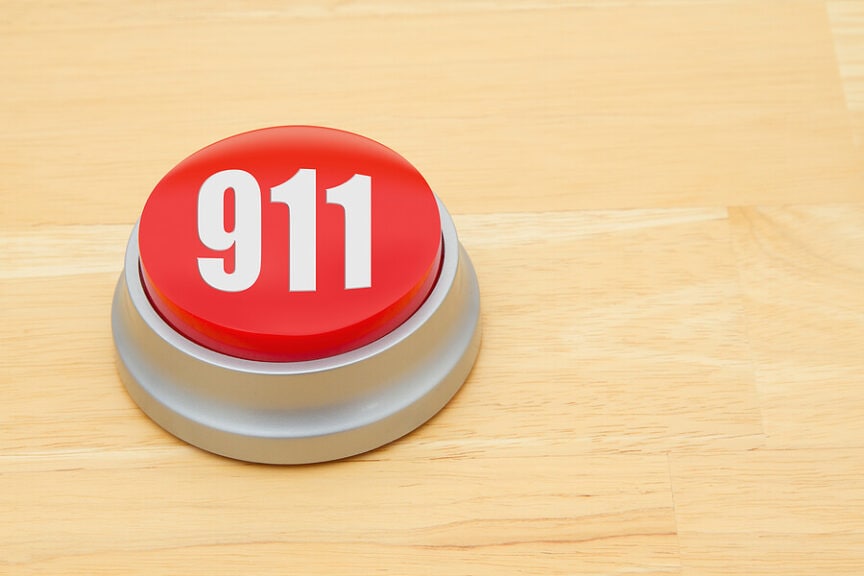Emergencies can happen at any time and in any place, posing unique challenges for individuals with hearing loss. If you rely on hearing aids to communicate and stay connected, an emergency can impact your safety and accessibility concerns. Whether it’s a natural disaster, medical emergency, or sudden evacuation, being prepared for emergencies is essential for ensuring safety and well-being. Here are some practical tips and strategies for preparing for emergencies with hearing aids. We hope you stay safe, informed, and connected during times of crisis.
1. Create an Emergency Kit for Your Hearing Aids
Assemble an emergency kit specifically tailored to your hearing aids. This should contain essential supplies and equipment to keep your devices functioning during emergencies. Your emergency kit should include:
- Spare batteries or rechargeable battery packs for your hearing aids
- Cleaning supplies, such as alcohol wipes or cleaning brushes to maintain hygiene and prevent moisture buildup
- A small, waterproof container or pouch to protect your hearing aids from water damage
- A dehumidifier or drying kit to remove moisture from your hearing aids
- A backup set of ear molds or domes in case of loss or damage
- Written instructions for troubleshooting common hearing aid issues and performing basic maintenance tasks
Keep your emergency kit in a readily accessible location, such as a designated spot in your home or workplace, and ensure that family members, caregivers, or emergency responders are aware of its contents and location.
2. Stay Informed and Connected
In times of emergency, staying informed of relevant information and updates is crucial for making informed decisions and ensuring your safety. Here are some tips for staying connected with hearing aids:
- Sign up for emergency alerts and notifications through your smartphone, email, or local emergency management agency. Many emergency alert systems offer options for receiving alerts in accessible formats, such as text messages or visual notifications.
- Carry a communication card indicating that you wear hearing aids and may require assistance during emergencies. Include emergency contact information, medical alerts, and any communication preferences or accommodations you may need.
3. Practice Emergency Preparedness Drills
Regularly practice emergency preparedness drills and scenarios to ensure that you and your family members are familiar with emergency procedures and protocols. During drills, practice communicating and evacuating with hearing aids. Develop a communication plan with family members or neighbors to establish alternative methods of communication if needed.
4. Secure Your Hearing Aids During Emergencies
During emergencies, it’s essential to secure your hearing aids to prevent loss or damage and ensure your safety and well-being. Keep your hearing aids securely in place by using retention cords or clips to attach them to your clothing or accessories. This will prevent your hearing aids from falling out or getting lost during evacuation or movement.
You can also remove your hearing aids and place them in their protective case or container to protect them from damage. Carry your emergency kit with you to ensure that you have essential supplies and equipment readily available.
5. Communicate Your Needs and Preferences
Communicate your hearing needs and preferences to emergency responders and healthcare providers. Clearly explain that you wear hearing aids and may require accommodations or assistance to communicate effectively and access information. For example, you may ask for accessible communication methods, such as written instructions, to ensure that you receive timely and accurate information during emergencies.
6. Regular Maintenance and Checkups
Regular maintenance and checkups are essential. This ensures your devices are functioning well, especially during emergencies. Schedule regular appointments with your hearing healthcare provider to:
- Clean and inspect your hearing aids for signs of damage, wear, or malfunction
- Check the fit and condition of your ear molds or domes
- Update your hearing aid settings or programming as needed based on changes in your hearing or lifestyle
By staying proactive about maintenance and checkups, you can ensure that your hearing aids are in good working condition and ready to perform when you need them most, including during emergencies.
Be Prepared, Stay Safe
Preparing for emergencies with hearing aids is essential for ensuring the safety, accessibility, and well-being of individuals with hearing loss. Remember, being prepared is the key to staying safe and resilient in any emergency. Contact us to talk about emergency preparedness.

